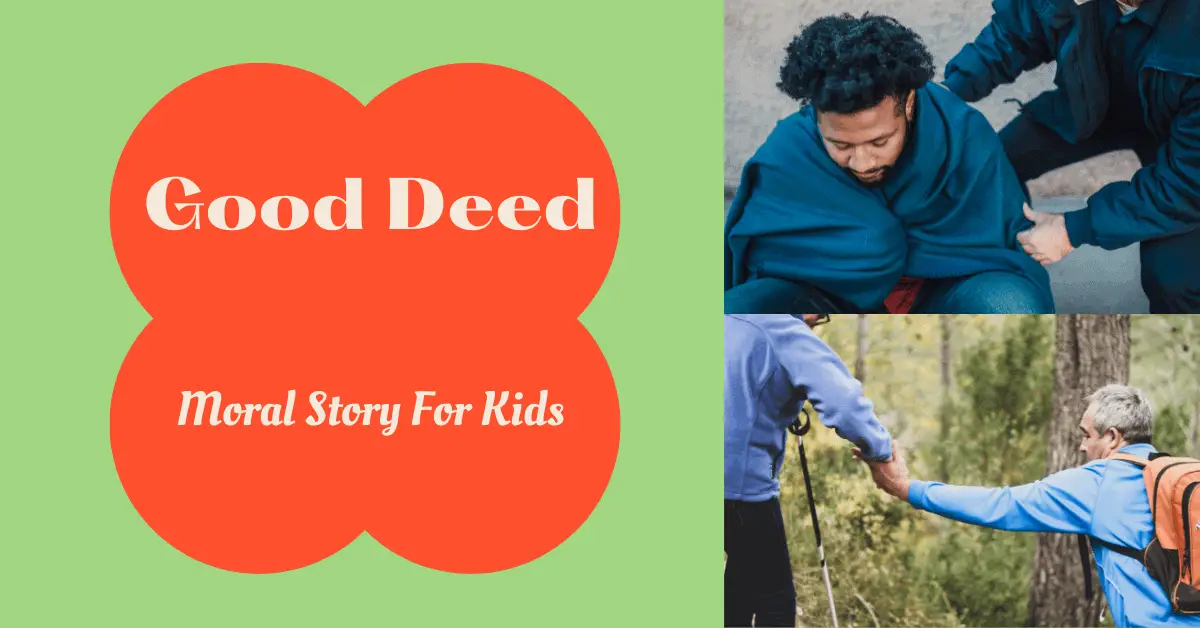Updated on July 5, 2024
Have you heard the moral story of the bag of apples and the math lesson? In the colourful world of education, some moments teach us as much as they do the students. This delightful tale about a teacher, a young boy, and a bag of apples is one such story. It’s a story that carries a valuable lesson for both children and adults alike – a lesson about understanding and appreciating different perspectives. So, let’s dive into the world of mathematics and sweet fruits as we explore the charming story of the teacher and the young boy.
The Bag Of Apples And The Math Lesson
Once upon a time, there was a teacher who was teaching math to a six-year-old boy. The teacher asked, “If I give you one apple and then one more apple and one more apple, how many apples will you have?”
The little boy thought for a moment and said confidently, “Four!”
The teacher was surprised because she expected the answer to be three. She thought the boy might not have been listening, so she asked again, “Please listen carefully. It’s very simple. If I give you one apple and one apple and one apple, how many apples will you have?”
The boy saw the disappointment on his teacher’s face, so he tried to calculate it again on his fingers. He wanted to make his teacher happy, so he hesitated and said, “Four…”
The teacher was still disappointed. She knew the boy loved strawberries, so she thought maybe he didn’t like apples, and that’s why he couldn’t focus. With excitement and twinkling eyes, she asked, “If I give you one strawberry and one strawberry and one strawberry, how many will you have?”
This time, the young boy calculated on his fingers, feeling a bit of pressure from his teacher. He wanted to make her happy, so he hesitatingly replied, “Three?”
The teacher had a big smile on her face. Her new approach had worked, and she felt proud of herself. But there was one more question she had to ask.
She said, “Now if I give you one apple and one apple and one more apple, how many will you have?”
The boy answered quickly, “Four!”
The teacher was surprised and asked, “How? Tell me, how?” in a stern and irritated voice.
In a low and hesitant voice, the young boy replied, “Because I already have one apple in my bag.”
Moral Of The Story The Bag Of Apples
The moral of the story is: When someone gives you an answer that is different from what you expect, it doesn’t mean they’re wrong. They might have a different perspective or information that you don’t know about. It’s important to appreciate and understand different points of view. Instead of imposing our ideas on others, we should ask, “Can you please help me understand?” This way, we can learn and grow together.
Conclusion
The story of the teacher, the young boy, and the bag of apples reminds us of the importance of empathy, patience, and open-mindedness. When someone offers a perspective that differs from our own, it’s an opportunity for growth and learning. Instead of imposing our beliefs or assuming someone is wrong, we can follow the example of the teacher and gently ask, “Can you please help me understand?” By doing so, we open the door to a richer exchange of ideas, foster better communication, and ultimately build a more harmonious and understanding world. So, the next time someone offers a different viewpoint, remember this heartwarming tale and be ready to embrace the unexpected lessons it may bring.
Recommended Moral Stories
- Sammy’s Epic Quest: Moral Story For Kids
- The Wise Old Owl Moral Story On Wisdom And Compassion
- The Heavy Stone: A Moral Story Of Teamwork And Kindness
- The Importance Of Compassion: A Story Of Help And Respect
What did you learn from the above story?
I appreciate your visit. I trust you found the post enjoyable.
Remember, Sharing Is Caring! Feel free to share this post on your social media and other networks to help others discover it.
PVM

Mathukutty P. V. is the founder of Simply Life Tips. He is a Blogger, Content Writer, Influencer, and YouTuber. He is passionate about learning new skills. He is the Director of PokketCFO.
He lives with the notion of “SIMPLE LIVING, CREATIVE THINKING”. He Believes – “Sharing is caring.” and “Learning never ends.”





